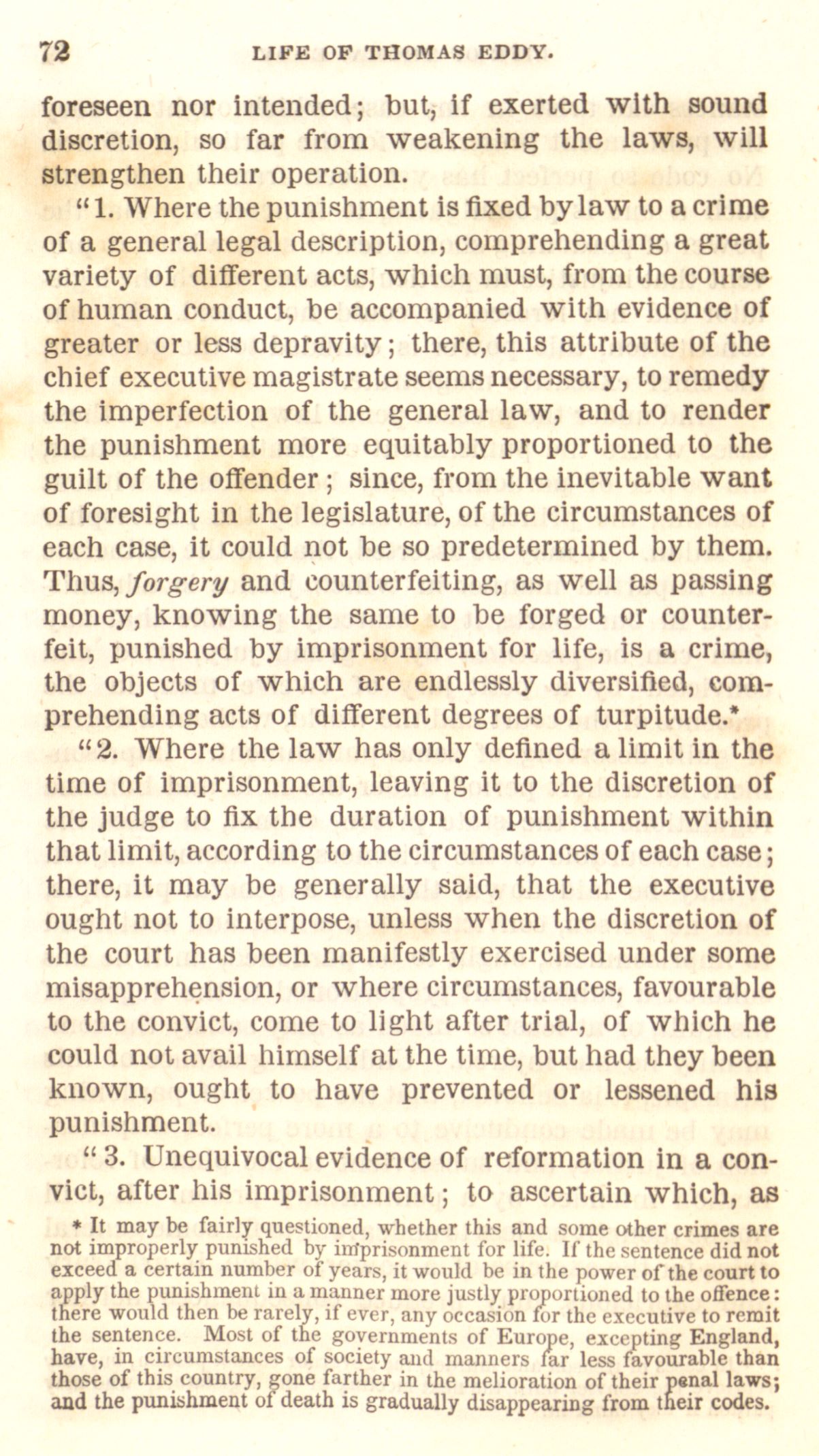foreseen nor intended; but, if exerted with sound
discretion, so
far from weakening the laws, will
strengthen their operation.
of a general legal description, comprehending a great
variety of different acts, which must, from the course
of human conduct, be accompanied with evidence of
greater or less depravity; there, this attribute of the
chief executive magistrate seems necessary, to remedy
the imperfection of the general law, and to render
the punishment more equitably proportioned to the
guilt of the offender; since, from the inevitable want
of foresight in the legislature, of the circumstances of
each case, it could not be so predetermined by them.
Thus, forgery and counterfeiting, as well as passing
money, knowing the same to be forged or counter-
feit, punished by imprisonment for life, is a crime,
the objects of which are endlessly diversified, com-
prehending acts of different degrees of turpitude.*
* It may be fairly questioned, whether this and some other crimes are
not improperly punished by imprisonment for life. If the sentence did not
exceed a certain number of years, it would be in the power of the court to
apply the punishment in a manner more justly proportioned to the offence:
there would then be rarely, if ever, any occasion for the executive to remit
the sentence. Most of the governments of Europe
Place Information
Place Information
have, in circumstances of society and manners far less favourable than
those of this country, gone farther in the melioration of their penal laws;
and the punishment of death is gradually disappearing from their codes. Where the law has only defined a limit in the
time of imprisonment, leaving it to the discretion of
the judge to fix the duration of punishment within
that limit, according to the circumstances of each case;
there, it may be generally said, that the executive
ought not to interpose, unless when the discretion of
the court has been manifestly exercised under some
misapprehension, or where circumstances, favourable
to the convict, come to light after trial, of which he
could not avail himself at the time, but had they been
known, ought to have prevented or lessened his
punishment. Unequivocal evidence of reformation in a con-
vict, after his imprisonment; to ascertain which, as

